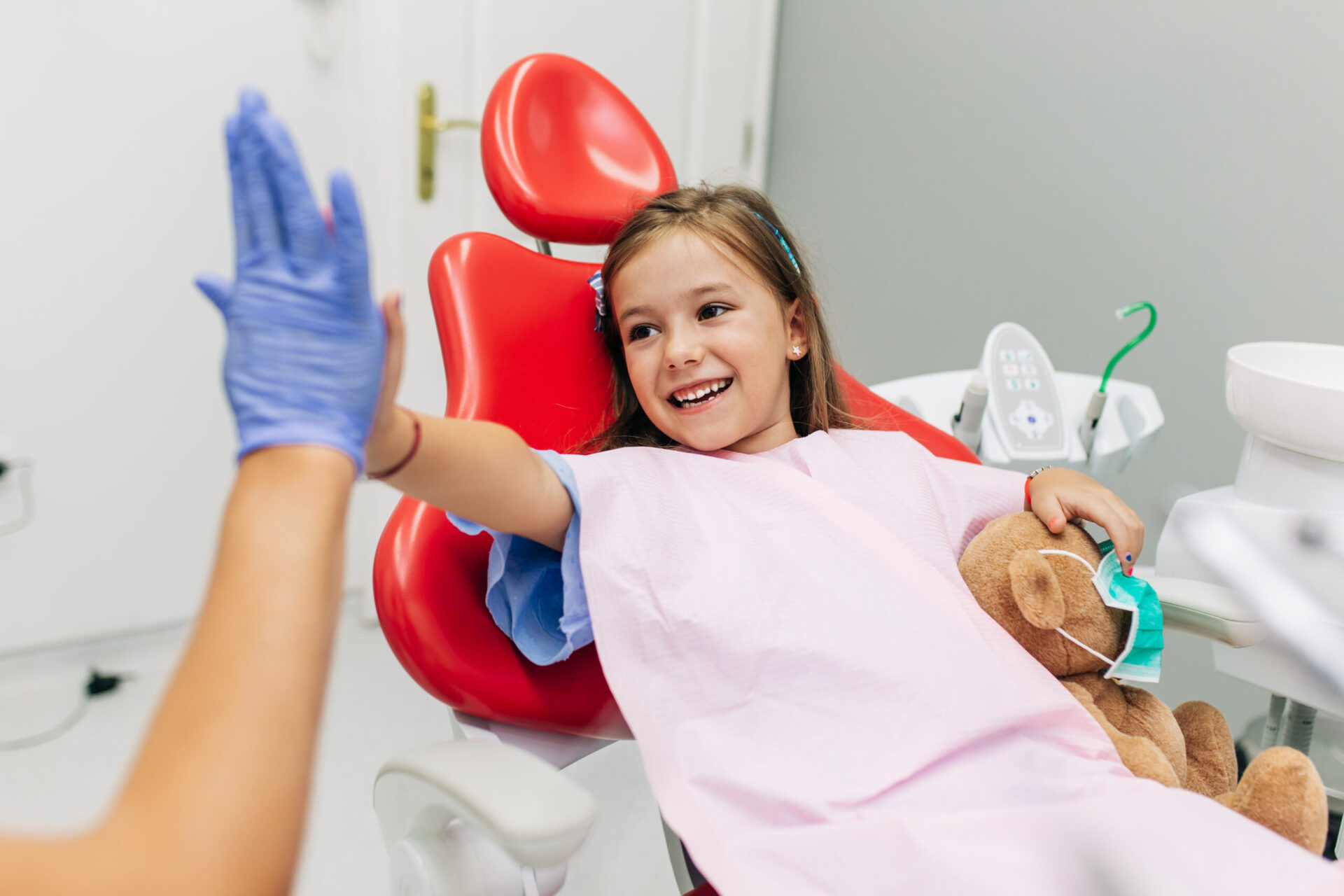Dental anxiety is a common phenomenon among children, often stemming from fear of the unknown, previous negative experiences, or sensory sensitivities. Pediatric dentists recognize the importance of addressing dental anxiety to ensure positive dental experiences for young patients. By employing various strategies tailored to children’s needs, pediatric dentists help alleviate fear and create a comfortable environment conducive to effective dental care. Let’s explore some of the strategies used by pediatric dentists to address dental anxiety in children.
Establishing Trust and Rapport
Building trust and rapport with young patients is paramount in addressing dental anxiety. Pediatric dentists take the time to connect with children on a personal level, engaging in friendly conversation, and demonstrating empathy and understanding.
“Establishing a trusting relationship with our young patients is the foundation of successful dental visits,” explains Dr. Lisa Adams, a pediatric dentist. “By creating a warm and welcoming atmosphere, we help children feel safe and comfortable during their visit.”
Child-Centered Approach
Pediatric dentists employ a child-centered approach that prioritizes the individual needs and preferences of each child. They tailor communication, treatment techniques, and environmental modifications to accommodate children’s unique personalities and sensory sensitivities.
“We recognize that every child is unique, and we adapt our approach accordingly,” says Dr. Adams. “By involving children in decision-making, providing choices, and offering distractions, we empower them to feel more in control of their dental experience.”
Positive Reinforcement
Positive reinforcement plays a crucial role in managing dental anxiety and promoting cooperation during dental visits. Pediatric dentists use praise, encouragement, and small rewards to recognize children’s bravery and cooperation during procedures.
“Positive reinforcement helps children feel confident and motivated to participate in dental care,” notes Dr. Adams. “By celebrating their achievements, we build their self-esteem and create positive associations with dental visits.”
Desensitization Techniques
Desensitization techniques are used to gradually acclimate children to the sights, sounds, and sensations of the dental office. Pediatric dentists may invite children to explore dental instruments, practice sitting in the dental chair, or watch videos of dental procedures to familiarize them with the environment and reduce anxiety.
“We take a gradual approach to desensitization, introducing children to dental experiences at their own pace,” explains Dr. Adams. “By gradually increasing exposure to dental stimuli in a controlled and supportive environment, we help children become more comfortable with dental visits over time.”
Distraction and Relaxation Techniques
Distraction and relaxation techniques are effective tools for diverting children’s attention away from dental procedures and promoting relaxation. Pediatric dentists may use toys, games, music, or guided imagery to engage children’s senses and help them feel more at ease during treatment.
“Distraction techniques such as storytelling or playing music can help shift children’s focus away from dental procedures and reduce anxiety,” says Dr. Adams. “Creating a calm and soothing atmosphere in the dental office also contributes to relaxation and comfort.”
Conclusion: Creating Positive Dental Experiences
Addressing dental anxiety in children requires a multifaceted approach that focuses on building trust, empowering children, and providing personalized support. With the strategies used by pediatric dentists, children can overcome fear and anxiety and develop positive attitudes toward dental visits.
To learn more about how pediatric dentists address dental anxiety and schedule a visit for your child, besuchen a trusted children’s dental practice in your area. Together, we can create positive dental experiences that promote lifelong oral health and well-being.

